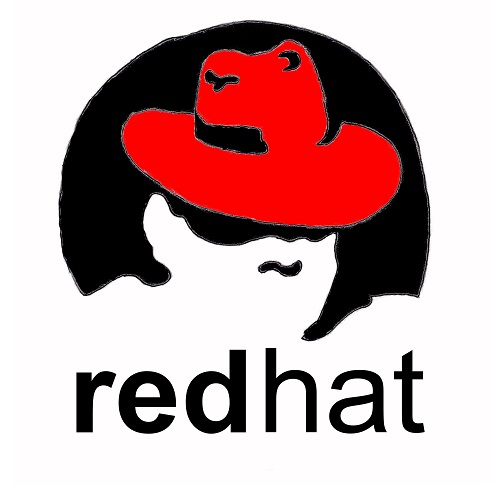
Community release introduces new networking modules and persistent connections framework to further enable DevOps for the network
 Red Hat has announced the general availability of Ansible 2.3, the latest version of the leading simple, powerful, and agentless open source IT automation framework. Ansible 2.3 provides performance enhancements and advanced networking capabilities, including adding connection methods designed to increase flexibility and improve performance.
Red Hat has announced the general availability of Ansible 2.3, the latest version of the leading simple, powerful, and agentless open source IT automation framework. Ansible 2.3 provides performance enhancements and advanced networking capabilities, including adding connection methods designed to increase flexibility and improve performance.
The upstream Ansible project is one of the most popular open source automation projects on GitHub with an active and engaged community. Ansible’s modular code base is powerful enough to manage today’s infrastructure, but also easily adapts to new IT needs and DevOps workflows. With Ansible, developers and IT operations teams can more quickly automate the entire application lifecycle – from physical and virtual servers to cloud computing deployments to Linux containers.
Ansible 2.3 retains a focus on networking infrastructure enablement through new features as well as providing overall performance enhancements, including:
Enhanced networking capabilities such as a persistent connections framework. Persistent connections allow for one SSH connection to stay active across multiple Ansible tasks – reducing the total time for completion and delivering up to a 10 times networking performance improvement in tests conducted by Red Hat and various partners. For Playbooks to take advantage of persistent connections in Ansible 2.3, two connection methods have been enabled: 1) the existing command line interface (CLI) connection method and 2) the newly added NETCONF connection method.
Additionally, Ansible 2.3 includes new networking platform support or modules from Apstra, Arista Networks, Avi Networks, Big Switch Networks, Cumulus Networks, Fortinet, Huawei, Lenovo, Ordnance, and Palo Alto Networks. The number of supported networking platforms has grown to 29 and the total networking module count is now 267.
Broader support for Microsoft Windows with many new and enhanced modules that make automating Windows with Ansible easier. Ansible 2.3 also offers pipelining support to boost performance.
Simplified integration of community contributions with the introduction of a metadata-based system for modules. There is now one centralized repository for contributions, tickets, submissions and more – making it easier for both the community and the Ansible Core team to manage and drive further community involvement.
Availability
Ansible 2.3 is now available in the following stable branch via GitHub.
Supporting Quotes
Tim Cramer, engineering director, Ansible, Red Hat
“Since first introducing networking modules into Ansible, we have aimed to help users better orchestrate entire application infrastructures, including network devices, with one automation tool. With Ansible 2.3 the total number of networking modules has grown to 267, and we have expanded from networking enablement to a focus on increasing performance and providing better support for network environments, making Ansible a key component of networking deployments in production.”
Jeremy Schulman, head of customer enablement, Apstra, Inc.
“We are excited to have the Apstra Operating System® (AOS) as a supported networking platform starting in the Ansible 2.3 release. This allows Ansible to leverage AOS’ open APIs and enables you to more seamlessly integrate AOS within your existing DevOps methodology.”
Dave Thelen, extensibility engineer, Arista Networks
“Ansible has quickly become one of the most important tools in the network operating tool belt. Whether it be automating the deployment of an entire data center or using play books to more efficiently troubleshoot issues, Ansible allows tasks that use to take significant time to be automated quickly with a very low learning curve. The enhancements that are included in 2.3 will allow for automating even more tasks for networks of any size and complexity.”
Edward Sharp, chief security officer, Avi Networks
“Automation is at the center of cloud IT, and Ansible is emerging as the standard to convert complex configurations into simple, scalable, automatable rules. With release 2.3, Ansible is extending this lead, with the addition of modules for application networking and more.”
John Maddison, senior vice president of products and solutions, Fortinet
“Increasing network complexity and a rapidly expanding threat landscape is driving the need for flexible tools that enable organizations to automate their security and network operations to suit their individual needs. Fortinet’s Ansible 2.3 integration provides additional DevOps tools that enable our carrier, service provider and enterprise customers to optimize their network operations to fully leverage the broad, powerful and automated defenses of the Fortinet Security Fabric.”
Additional Resources
- Learn more about the networking features in Ansible 2.3
- Read the blog post Network Device Authentication in Ansible 2.3
Connect with Red Hat
- Learn more about Red Hat
- Get more news in the Red Hat newsroom
- Read the Red Hat blog
- Follow Red Hat on Twitter
- Join Red Hat on Facebook
- Watch Red Hat videos on YouTube
- Join Red Hat on Google+
- Follow Red Hat on LinkedIn
About Red Hat, Inc.
Red Hat is the world’s leading provider of open source software solutions, using a community-powered approach to provide reliable and high-performing cloud, Linux, middleware, storage and virtualization technologies. Red Hat also offers award-winning support, training, and consulting services. As a connective hub in a global network of enterprises, partners, and open source communities, Red Hat helps create relevant, innovative technologies that liberate resources for growth and prepare customers for the future of IT. Learn more at http://www.redhat.com.




